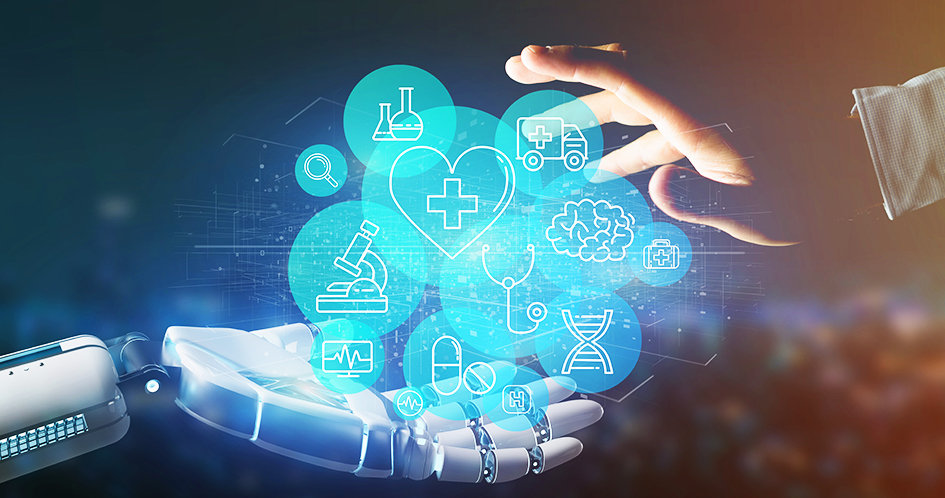- Home
- How Artificial Intelligence is Revolutionizing the Healthcare Industry
How Artificial Intelligence is Revolutionizing the Healthcare Industry
Artificial intelligence (AI) has been transforming the healthcare industry in several ways. It is critical in improving healthcare delivery's accuracy, speed, and efficiency and helping predict and prevent disease. This article will explore how AI is transforming the healthcare industry.
1. Diagnosis and Treatment
AI is making significant progress in helping doctors diagnose and treat patients more accurately and efficiently. One example of this is in radiology, where AI algorithms can analyze medical images to identify abnormalities and assist in diagnosing diseases such as cancer, heart disease, and lung disease. AI-powered diagnostic tools can also help doctors identify rare diseases which can be challenging to diagnose.
Another area where AI is transforming healthcare is drug discovery. AI can analyze large datasets of biological information and predict the effectiveness of new drugs, potentially speeding up the drug development process and reducing costs.
AI is also being used to develop personalized treatment plans for patients. By analyzing a patient's medical history and genetic information, AI can help doctors tailor treatment plans to an individual's specific needs and predict how they will respond to certain treatments.
2. Remote Monitoring and Care
AI is also critical in remote monitoring and care, particularly for patients with chronic conditions. Remote monitoring tools can collect blood pressure, heart rate, and glucose levels and send that data to healthcare providers in real-time. This allows doctors to monitor their patient's health remotely and intervene when necessary, potentially reducing hospital readmissions and improving patient outcomes.
Telemedicine is another area where AI is transforming healthcare. Telemedicine allows doctors to diagnose and treat patients remotely, which can be especially useful for patients who live in rural or remote areas. AI-powered telemedicine platforms can analyze patient data and give doctors real-time insights, helping them make more accurate diagnoses and develop personalized treatment plans.
3. Predictive Analytics and Disease Prevention
AI is also helping to predict and prevent disease. AI algorithms can identify disease patterns and risk factors by analyzing extensive medical records and genetic information datasets. This information can be used to develop targeted disease prevention strategies, such as early intervention programs for high-risk patients.
AI is also being used to develop predictive models for disease outbreaks. By analyzing population movements, weather patterns, and other factors, AI algorithms can predict the spread of infectious diseases and help healthcare providers prepare for outbreaks.
4. Improved Patient Experience
Finally, AI is also helping to improve the patient experience. AI-powered chatbots and virtual assistants can inform patients about their health conditions, answer common questions, and schedule appointments. This can help patients feel more informed and empowered in their healthcare decisions.
AI can also improve the patient experience by reducing wait times and streamlining administrative tasks. By automating tasks such as appointment scheduling and medical record-keeping, AI can free doctors and nurses to focus on patient care.
Conclusion
AI is transforming the healthcare industry in several ways, from improving diagnosis and treatment to predicting and preventing disease. Remote monitoring and care, predictive analytics, and improved patient experience are just a few areas where AI is making a significant impact.
While AI has the potential to revolutionize healthcare, there are also challenges to be addressed. One of the biggest challenges is ensuring that AI is used ethically and transparently, with appropriate safeguards to protect patient privacy and prevent bias.
Despite these challenges, AI is poised to play an increasingly important role in healthcare in the coming years, helping to improve patient outcomes and reduce healthcare costs. As AI continues to evolve, it will be necessary for healthcare providers to stay up-to-date on the latest developments and incorporate AI into their workflows responsibly and effectively.



.png)

What other's say about : How ThePhone thriller..